Francophone: Rokia Traoré/Mali | Orchestra Baobab/Senegal | Tinariwen Tuareg/Mali | Manu Dibongo/Cameroon | Alpha Blondy/Ivory Coast | Danyèl Waro/Réunion, produced by Cobie Ivens.
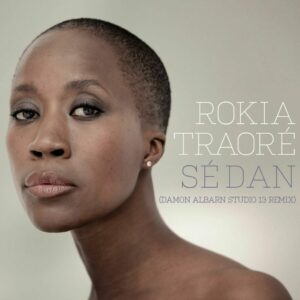 Rokia Traoré.
Rokia Traoré.
In terms of lyrics, Rokia Traoré is in line with the griots, the musical storytellers who functioned as history teachers, entertainers and political commentators in West Africa. Rokia Traoré sings about love, her hometown of Kolokani, but also does not shy away from a sensitive subject such as the refugee crisis. The only English-language song is an impressive cover of Billie Holiday’s chilling Strange Fruit.
CD. Né so – Rokia Traoré. LABEL: Nonesuch Records (2016), code: 7559-79475-5. VIDEO
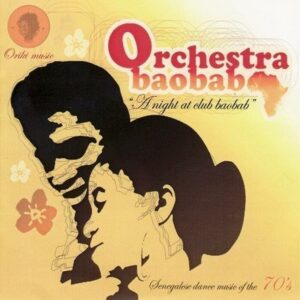 Orchestra Baobab.
Orchestra Baobab.
Until the Dakar-based Club Baobab closed its doors in 1979, the Orchestra Baobab played Afro-Cuban music with Senegalese influences night after night.
Later they would become world famous for this. These recordings date back to their early days: from 1972 to 1978.
CD. A Night at Club Baobab – Orchestra Baobab.
LABEL: Oriki (2006), code: CD 01. VIDEO
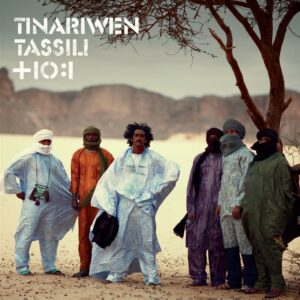 Tinariwen.
Tinariwen.
One of the best guitar rock bands in the world consists of ex-freedom fighters belonging to the Tuareg, a nomadic tribe from the Sahara that was oppressed and discriminated against for years. The trance-like desert blues of the Malian band Tinariwen, with raw Arabic vocals and amplified guitars, is a hit worldwide. However, the fifth studio album Tassili has become a ‘back to basic’ album, with acoustic guitar strumming, hand-studded drums and rhythmic clapping. Because the northern region of Mali was too dangerous, it was decided to film in the Tassili N’Ajjer desert in southern Algeria. CD. Tassili – Tinariwen. LABEL: V2 Records (2011), code: VVR 776938. VIDEO
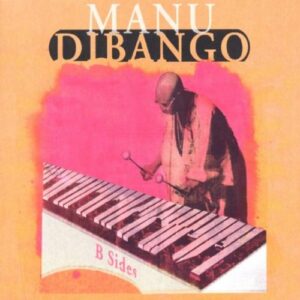
Manu Dibango.
Songs from the late seventies and early eighties in which Manu Dibango, the later band leader, composer, alto saxophonist and vibraphonist from Cameroon, mainly plays vibraphone. The album: B sides contains a number of contemporary remixes of, among others: Soul Fiesta and the song Bessoka. In 1972, Dibango personally created interest in African music in the Western world with the album Soul Mokassa.
CD. B sides – Manu Dibango. LABEL: Melodie (2006), code: 859082. VIDEO
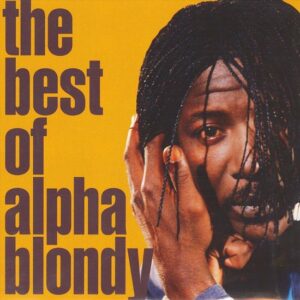 Alpha Blondy.
Alpha Blondy.
In the 1980s, reggae grew into a global phenomenon. The Jamaicans no longer had a monopoly on music. Alpha Blondy (Ivory Coast) first came into contact with reggae in 1973 while living in New York. Blondy’s music is strongly inspired by the roots reggae of Bob Marley. In his texts he is socially critical. On the other hand, he is interested in spirituality, as evidenced by songs such as God Is One. Since 2005, Alpha Blondy has also been Ambassador for Peace on behalf of the United Nations.
CD. The best of Alpha Blondy. LABEL: EMI (1996), code: 8370412 002 of 002 8370412. VIDEO
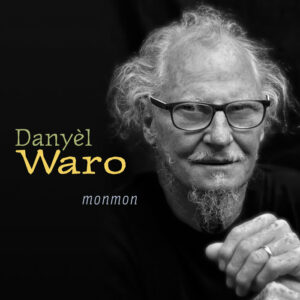 Danyèl Waroh
Danyèl Waroh
He has always remained faithful to the acoustic tradition of Maloya, the blues of Réunion Island, and is recognized as its ‘hero’. As a musician and poet, he sings Creole with unparalleled emotion. As Richard Robert wrote in Les InRocKuptibles magazine: “The sudden anger and the sharp wisdom of his lyrics combine in a form of trance that is not experienced as an escape, a deliberate and controlled loss of mind and senses, but on the contrary as the quest for a higher consciousness that unites thought, word and gesture in a single impulse.”
CD. Monmon – Danyèl Waro. LABEL: Buda Musique (2017), code: 860309. VIDEO
Producer: Cobie Ivens
Thanks to:
![]()









